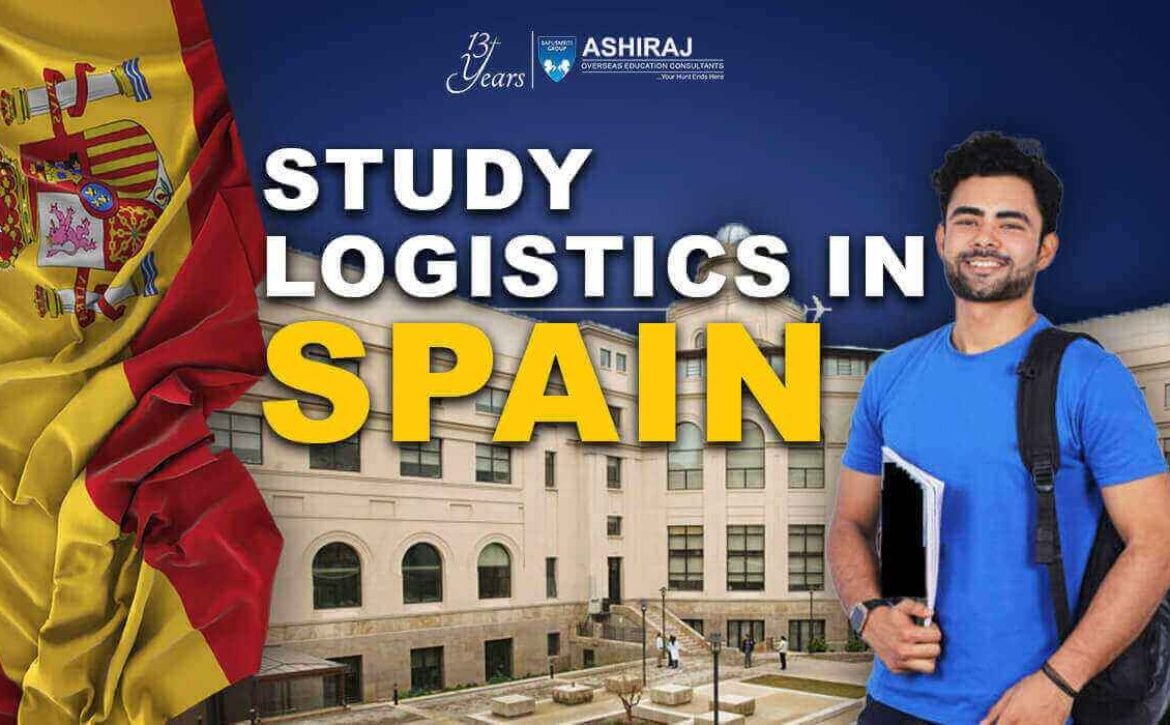
Logistics in Spain
Logistics in Spain is a dynamic and crucial component of the country’s economic infrastructure. With its strategic location at the crossroads of Europe, Africa, and the Americas, Spain plays a pivotal role in global trade, making efficient logistics a key driver for economic success. The diverse and well-connected transportation network, including modern ports, highways, and railways, enhances the country’s capability to handle a wide range of goods. From the bustling ports of Barcelona and Valencia to the extensive road and rail networks crisscrossing the nation, logistics in Spain seamlessly integrates with international supply chains.
The logistics sector in Spain has evolved to meet the demands of a rapidly changing global market. Cutting-edge technology and streamlined processes contribute to the efficiency and competitiveness of Spanish logistics. As a vital hub for the movement of goods, the logistics industry in Spain continues to adapt and innovate, reinforcing the country’s position as a logistics powerhouse in the heart of Europe. Logistics in Spain is not merely a facilitator of trade; it’s a strategic advantage that propels the nation’s economic growth and fosters international collaboration.
Why to Study Logistics in Spain?:
- Global Connectivity: Spain’s strategic position as a crossroads between Europe, Africa, and the Americas provides students with firsthand exposure to global supply chain dynamics. Studying logistics in Spain means being at the heart of international trade.
- Cutting-edge Technology: The logistics industry in Spain embraces technological advancements, offering students a chance to learn and apply the latest innovations. From digital tracking systems to automated warehouses, students gain hands-on experience in a tech-savvy environment.
- Diverse Career Paths: A logistics degree from Spain opens doors to a myriad of career paths. Whether it’s managing maritime logistics in Barcelona’s bustling port or optimizing transportation networks, graduates are equipped for success in various sectors.
- Cultural Immersion: Beyond academics, studying logistics in Spain provides a unique cultural experience. Students can immerse themselves in the rich Spanish culture while building international networks that can prove invaluable in their future careers.
In conclusion, choosing Spain as the destination for logistics studies is a strategic move towards a globally relevant and rewarding career. Logistics in Spain isn’t just a subject; it’s an immersive journey into the heart of international trade and innovation.
Top Universities to Study Logistics in Spain
University | QS World Ranking 2023 | Type of University | Average Annual Fees | Programs Offered |
University of Barcelona | 150 | Public | €1,000 – €3,000 | – Bachelor in Logistics and Supply Chain Management – Master in International Business Logistics |
Autonomous University of Madrid | 200 | Public | €1,200 – €4,000 | – Bachelor in Transportation and Logistics Engineering – Master in Logistics and Operations Management |
IE Business School | 10 | Private | €20,000 – €35,000 | – Master in Supply Chain Management – Executive Master in Logistics and Supply Chain Strategy |
Pompeu Fabra University | 300 | Public | €1,500 – €4,500 | – Bachelor in International Business – Master in Logistics and Supply Chain Management |
ESADE Business School | 15 | Private | €22,000 – €40,000 | – Bachelor in Global Governance, Economics, and Legal Order – Master in International Logistics |
Embarking on a logistics education in Spain is a strategic choice, and the top universities in the country offer a diverse range of programs to cater to aspiring professionals. The University of Barcelona, with a QS World Ranking of 150, provides affordable education with programs such as Bachelor in Logistics and Supply Chain Management. For those seeking a private institution, IE Business School, ranked 10th globally, stands out with its prestigious Master in Supply Chain Management and Executive Master in Logistics and Supply Chain Strategy. The Autonomous University of Madrid and Pompeu Fabra University offer well-rounded logistics programs at competitive annual fees, making quality education accessible. ESADE Business School, ranked 15th globally, emphasizes global governance and logistics in its programs, offering students a unique perspective on international logistics challenges. In summary, these top universities in Spain not only provide excellent education in logistics but also offer a diverse range of programs to cater to the evolving needs of the industry.
Course Curriculum for Logistics in Spain
- Core Logistics Principles: The curriculum delves into the fundamental principles of logistics, covering topics such as inventory management, transportation, and supply chain optimization. Students gain a solid foundation in understanding the intricacies of managing the flow of goods.
- International Trade Dynamics: Given Spain’s role as a global trade hub, the coursework emphasizes the dynamics of international trade. This includes exploring customs regulations, cross-border logistics, and strategies for efficient global supply chain management.
- Technological Integration: Logistics in Spain embraces technology, and the curriculum reflects this by incorporating modules on digitalization, data analytics, and the use of cutting-edge logistics software. Students learn to navigate and leverage technology to enhance operational efficiency.
- Case Studies and Real-world Applications: The coursework is designed to be practical and applicable to real-world scenarios. Case studies drawn from the logistics landscape in Spain provide students with insights into challenges faced by industry professionals and strategies for effective problem-solving.
- Cultural and Ethical Considerations: Recognizing the importance of cultural sensitivity in the globalized logistics field, the curriculum addresses cultural nuances and ethical considerations. This prepares students to navigate diverse international environments responsibly.
In conclusion, the logistics curriculum in Spain is a dynamic blend of theoretical knowledge and practical applications, aligning with the country’s pivotal role in international trade. Students pursuing logistics in Spain not only gain a comprehensive understanding of logistics principles but also develop the skills and insights necessary for success in the ever-evolving global logistics landscape.
Eligibility Criteria & Admission Requirements for Logistics in Spain
- Language Proficiency:
Applicants are required to demonstrate proficiency in English, typically through standardized tests such as IELTS or TOEFL. A minimum score is stipulated by each university to ensure effective communication in an international academic environment.
- Academic Aptitude:
Universities often require standardized test scores, such as GRE or GMAT, to assess the academic aptitude of applicants. These scores provide insights into the candidate’s analytical and quantitative skills, crucial for success in logistics studies.
- Documentary Requirements:
As part of the application process, students need to submit essential documents, including a valid passport and student visa, academic certificates, and proof of relevant work experience if applicable. These documents serve as a basis for evaluating the applicant’s eligibility and readiness for the program.
Table: Standardized Test Scores
Test | Minimum Score Required |
IELTS | 6.5 |
TOEFL | 90 |
GRE | 310 |
GMAT | 650 |
Additional Documentation:
- Passport & Student Visa:
A valid passport is a prerequisite, and students must secure a student visa to study in Spain. Ensuring proper documentation is essential for a smooth transition and compliance with immigration regulations.
- Academic Certificates:
Submission of academic certificates, including transcripts and diplomas, is mandatory. These documents validate the educational background of applicants and are crucial for the admission process.
- Work Experience:
While not always mandatory, some programs may consider work experience as a valuable asset. Relevant professional experience in logistics or related fields enhances an applicant’s profile.
In summary, meeting the eligibility criteria for logistics studies in Spain involves a combination of language proficiency, academic performance, and comprehensive documentation. Adhering to these criteria ensures that students admitted to logistics programs in Spain are well-prepared for the academic rigors and practical challenges of the field.
Documents Required for Studying Logistics in Spain
- Passport:
A valid passport is the first and foremost requirement. Ensure that your passport has sufficient validity to cover the duration of your stay in Spain.
- Letters of Recommendation (LOR):
Two Letters of Recommendation from academic or professional references are commonly requested. These letters provide insights into your character, work ethic, and academic or professional achievements.
- Statement of Purpose (SOP):
The SOP is a personalized essay outlining your academic and professional aspirations, explaining why you’ve chosen logistics studies in Spain, and how the program aligns with your goals.
- Curriculum Vitae (CV):
A well-crafted CV details your educational background, work experience, skills, and any relevant achievements. It serves as a comprehensive snapshot of your qualifications.
- Official High School Transcripts:
Transcripts from your high school education provide a record of your academic performance. Ensure that these transcripts are official and include a clear indication of the courses completed and grades obtained.
- Educational Certificates:
Submission of academic certificates, including diplomas or degrees, is essential. These documents validate your educational qualifications and eligibility for the logistics program.
- Work Experience Certificate:
If applicable, provide a certificate validating your work experience. This is particularly relevant for applicants with professional experience in logistics or related fields.
- Proof of Financial Resources:
To comply with visa requirements, demonstrate proof of your ability to cover living expenses and tuition fees. This may include bank statements, sponsorship letters, or scholarship award letters.
Ensuring the meticulous compilation of these documents is crucial for a smooth application process. Logistics in Spain beckons aspiring students to not only meet academic requirements but also to present a comprehensive portfolio that reflects their readiness for the challenges of the logistics field.
Admission Process for Logistics in Spain
- Research and Choose Programs:
Explore logistics programs offered by reputed universities in Spain. Consider factors such as curriculum, faculty, and industry connections to find the best fit.
- Check Eligibility Criteria:
Review the eligibility criteria, including language proficiency (IELTS or TOEFL, GRE or GMAT scores), and ensure that you meet the academic and documentation requirements.
- Prepare Documents:
Compile essential documents, including a valid passport, letters of recommendation (LOR), statement of purpose (SOP), curriculum vitae (CV), official transcripts, educational certificates, work experience certificates, and proof of financial resources.
- Submit Online Application:
Complete the online application form provided by the chosen university. Ensure accuracy and thoroughness in filling out all required fields.
- Pay Application Fees:
Process the application fees as specified by the university. Keep records of payment confirmation for future reference.
- Wait for Admission Decision:
Universities typically take some time to review applications. Await the admission decision and stay informed about any additional requirements or interviews.
- Receive Letter of Admission:
Upon acceptance, universities issue a formal letter of admission. This document is crucial for visa applications and should be kept securely.
- Apply for Student Visa:
Initiate the student visa application process using the received letter of admission. Ensure all visa documentation, including proof of financial resources, is in order.
- Plan Arrival and Orientation:
Once the visa is approved, plan your arrival in Spain. Attend orientation sessions provided by the university to familiarize yourself with campus life and logistics program specifics.
- Begin Your Logistics Journey:
With admission secured and logistics in Spain at the forefront, commence your academic journey, ready to explore the dynamic world of logistics with a global perspective.
Navigating the admission process for logistics studies in Spain is a systematic and rewarding journey that opens doors to a world-class education and exciting career prospects.
“Education is the most powerful weapon which you can use to change the world.”
Nelson Mandela
Cost of Logistics Course in Spain
- Tuition Fees:
Logistics programs in Spain come with varying tuition fees. On average, public universities charge lower fees, ranging from €1,000 to €4,000 per year, while private institutions may have higher fees, often exceeding €20,000 annually.
- Living Expenses:
Consider living costs, including accommodation, food, transportation, and personal expenses. On average, students can budget between €800 to €1,200 per month, depending on the city and lifestyle.
- Accommodation:
Housing costs vary based on preferences. University dormitories, shared apartments, or private studios are available, with prices ranging from €300 to €800 per month.
- Health Insurance:
Health insurance is mandatory for students in Spain. The cost typically ranges from €50 to €100 per month, depending on coverage and provider.
- Books and Supplies:
Allocate funds for academic materials, including books, stationery, and other supplies. This can amount to approximately €300 to €500 per year.
- Miscellaneous Expenses:
Factor in additional costs for leisure, cultural activities, and unforeseen circumstances. Budgeting around €100 to €200 per month ensures financial flexibility.
- Transportation:
Public transportation costs vary by city. Monthly passes range from €40 to €80, depending on the mode of transport and location.
Understanding the cost of studying logistics in Spain is crucial for effective financial planning. While public universities offer more economical options, private institutions may require a higher budget. Logistics in Spain beckons students with a diverse range of budget-friendly choices and vibrant academic experiences.
Scholarships for Logistics Courses in Spain
Scholarship Program | Eligibility Criteria | Amount | Application Deadline |
Logistics Excellence Scholarship | Academic excellence in logistics-related studies, strong recommendation letters, and a compelling statement of purpose. | Up to €5,000 per year | May 15, 2023 |
Global Logistics Innovation Grant | Open to international students demonstrating innovative ideas in logistics. A minimum GPA of 3.0 is required. | €3,000 one-time grant | April 30, 2023 |
Diversity in Logistics Fellowship | Aimed at promoting diversity, open to students from underrepresented backgrounds in the logistics field. | €2,500 per semester | June 1, 2023 |
Future Leaders in Supply Chain Award | Recognizes leadership potential in supply chain management. Requires a strong academic record and leadership achievements. | €4,000 per academic year | March 31, 2023 |
Sustainable Logistics Scholarship | For students committed to sustainability in logistics. Applicants must submit a project outline focusing on eco-friendly practices. | €3,500 per year | July 15, 2023 |
Securing financial support for logistics studies in Spain is achievable through various scholarships catering to diverse criteria. The Logistics Excellence Scholarship, with a generous amount of up to €5,000 per year, emphasizes academic prowess. The Global Logistics Innovation Grant encourages innovative minds with a one-time grant of €3,000, while the Diversity in Logistics Fellowship promotes inclusivity with €2,500 per semester. Future Leaders in Supply Chain Award recognizes leadership potential with €4,000 annually, and the Sustainable Logistics Scholarship supports eco-friendly initiatives with €3,500 per year. Be sure to mark the respective application deadlines to maximize your chances of securing these valuable scholarships for your logistics journey in Spain. Logistics in Spain becomes even more accessible with these opportunities for financial assistance.
Career Opportunities After Logistics in Spain
Job Profile | Average Salary (Annual) | Career Overview |
Logistics Manager | €45,000 – €65,000 | Logistics managers oversee the entire supply chain process, coordinating transportation, warehousing, and distribution to ensure efficiency and cost-effectiveness. |
Supply Chain Analyst | €35,000 – €50,000 | Supply chain analysts analyze data and trends to optimize the supply chain. They collaborate with different departments to enhance logistics strategies and minimize operational costs. |
Transportation Coordinator | €30,000 – €40,000 | Transportation coordinators manage the logistics of goods movement, coordinating shipments, selecting carriers, and ensuring timely and cost-effective delivery. |
Warehouse Operations Manager | €40,000 – €55,000 | Warehouse operations managers oversee the day-to-day activities of warehouses, ensuring efficient storage, inventory management, and timely order fulfillment. |
International Trade Specialist | €35,000 – €50,000 | International trade specialists facilitate global transactions, managing customs compliance, trade regulations, and documentation to ensure smooth cross-border logistics. |
After completing logistics studies in Spain, graduates unlock a plethora of career opportunities with competitive salaries. A Logistics Manager, with an annual salary ranging from €45,000 to €65,000, spearheads the efficient flow of goods. Supply Chain Analysts, earning €35,000 to €50,000 annually, play a pivotal role in optimizing supply chain processes. Transportation Coordinators, with salaries ranging from €30,000 to €40,000, ensure the smooth movement of goods. Warehouse Operations Managers, earning €40,000 to €55,000 annually, oversee warehouse activities. International Trade Specialists, with salaries between €35,000 and €50,000, navigate the complexities of global logistics. Logistics in Spain paves the way for lucrative and diverse career paths in the dynamic field of supply chain management.
Frequently Asked Questions About Logistics in Spain
Spain boasts major logistics hubs such as Barcelona, Valencia, and Madrid, strategically positioned for efficient global trade.
Yes, many logistics programs in Spain are offered in English to cater to the international student community.
The duration varies, but generally, Bachelor’s programs take around 3-4 years, while Master’s programs span 1-2 years.
Yes, numerous scholarships are available, such as the Logistics Excellence Scholarship and Sustainable Logistics Scholarship.
Graduates can pursue careers as Logistics Managers, Supply Chain Analysts, Transportation Coordinators, Warehouse Operations Managers, and more.
Costs vary, with public universities charging lower tuition (€1,000 – €4,000 per year) and private institutions having higher fees (€20,000 and above).
While not always mandatory, some programs may consider relevant work experience as an asset during the admission process.
Applicants typically need to demonstrate proficiency in English, often through IELTS or TOEFL scores.
After receiving a letter of admission, students can apply for a student visa, providing necessary documentation including proof of financial resources.
Absolutely! Spain offers rich cultural experiences, and students can engage in local events, explore historical sites, and embrace the vibrant Spanish lifestyle.




